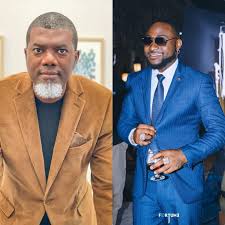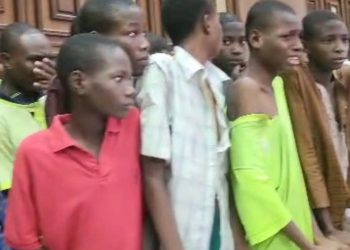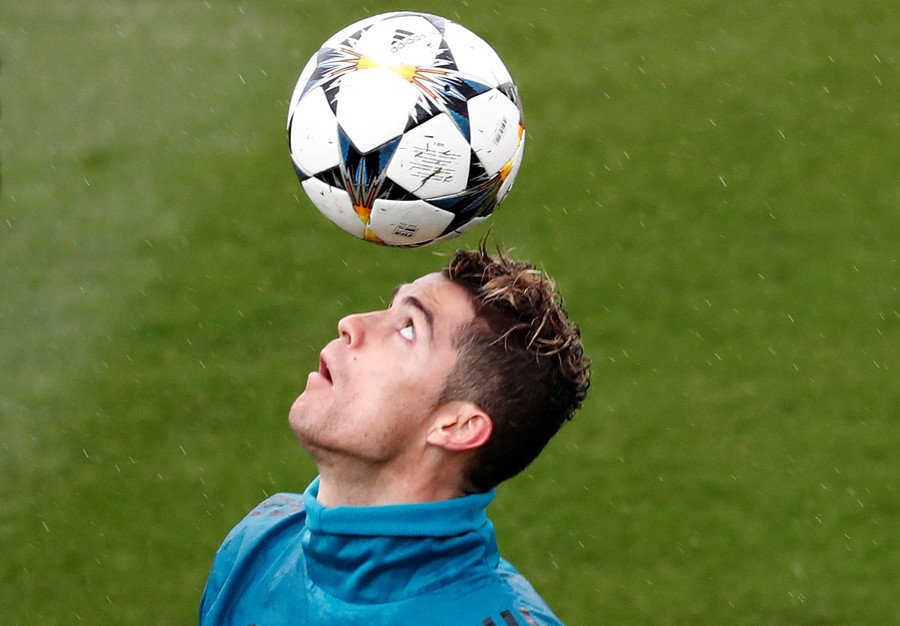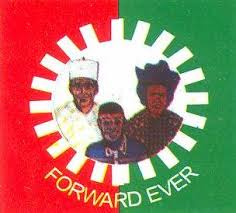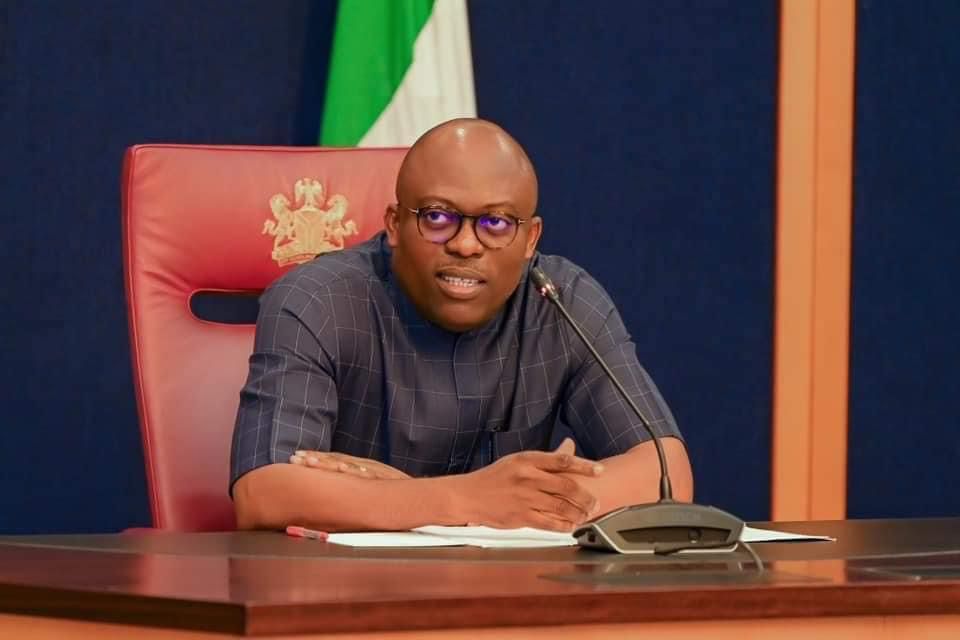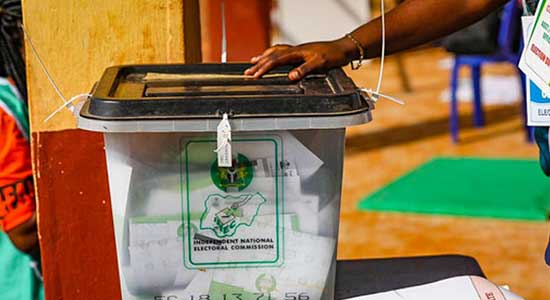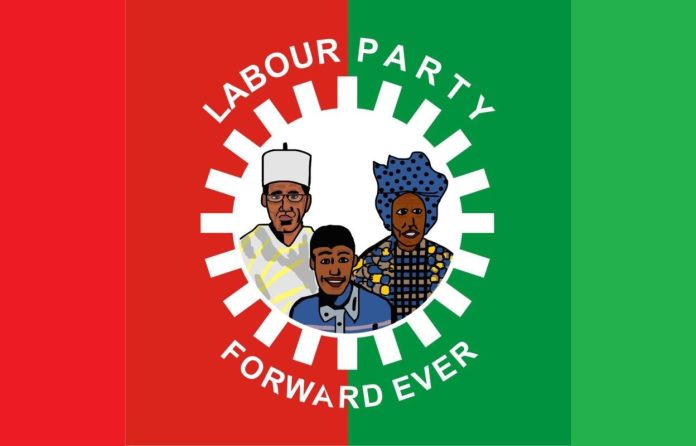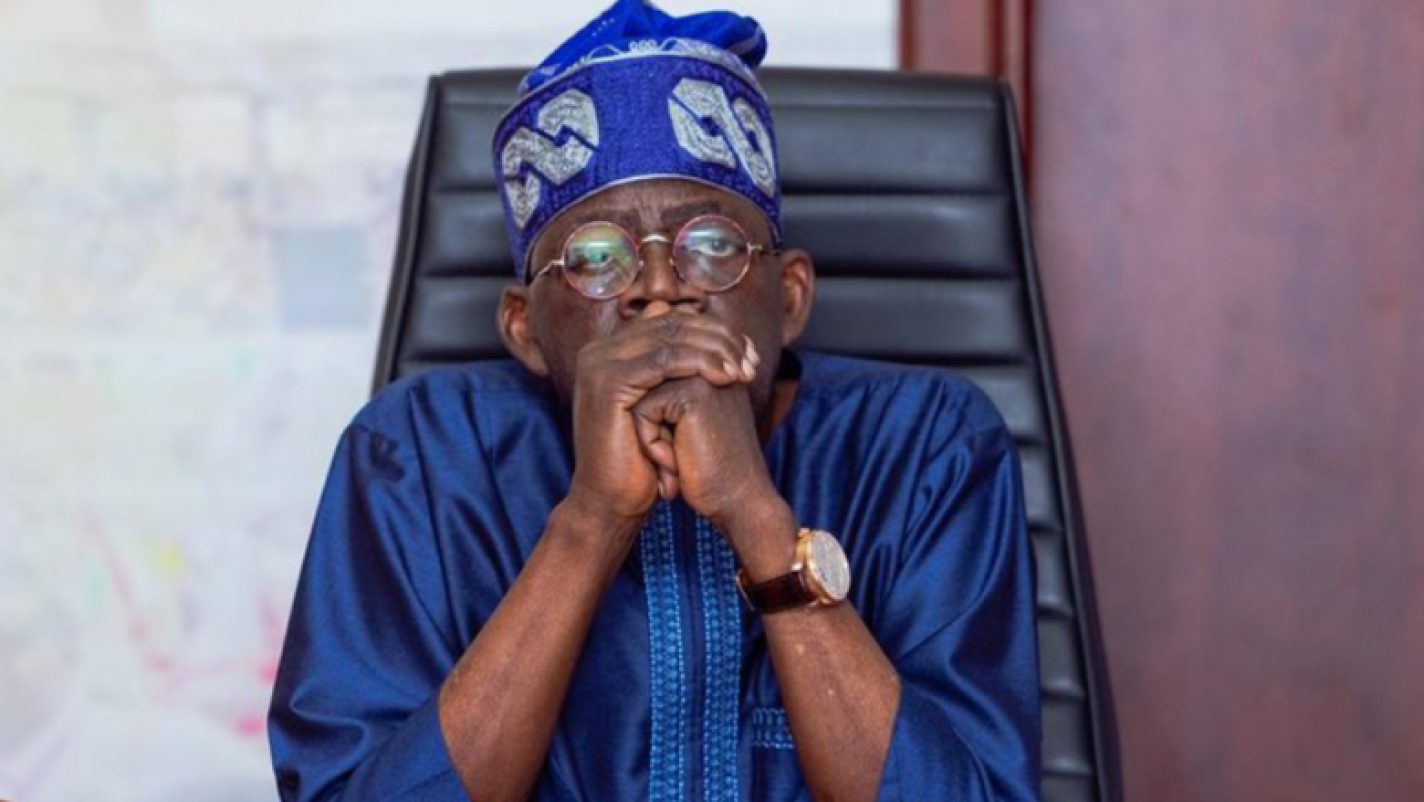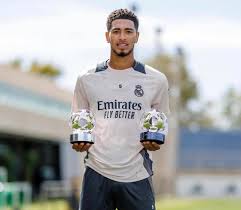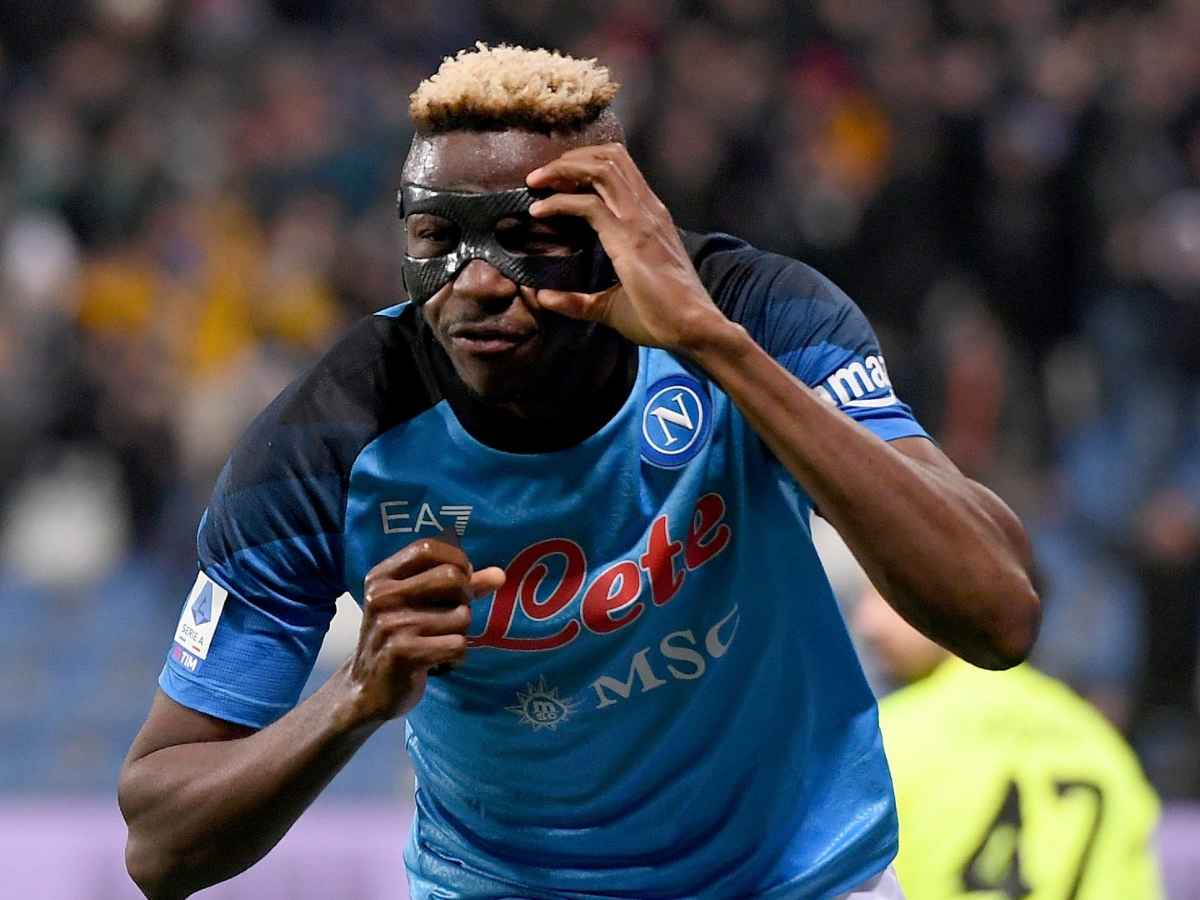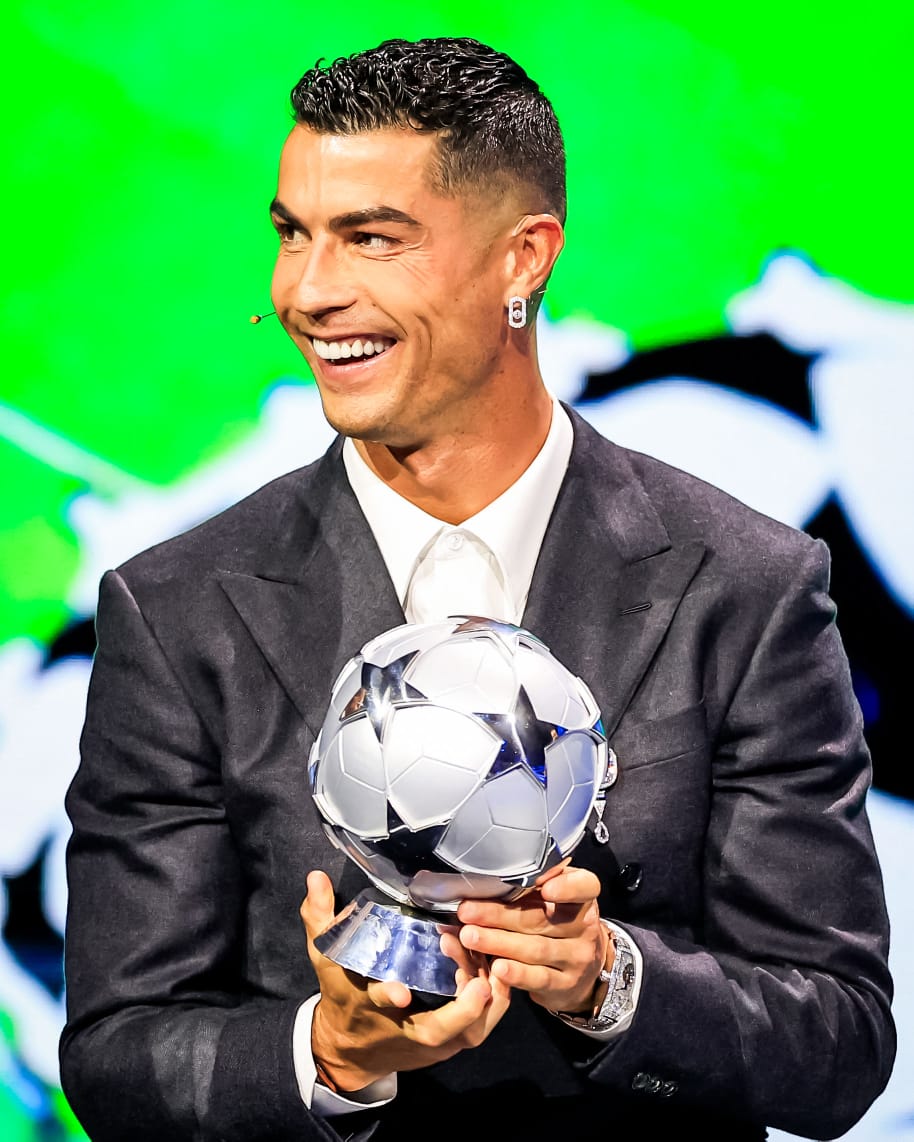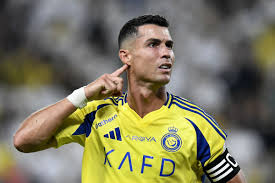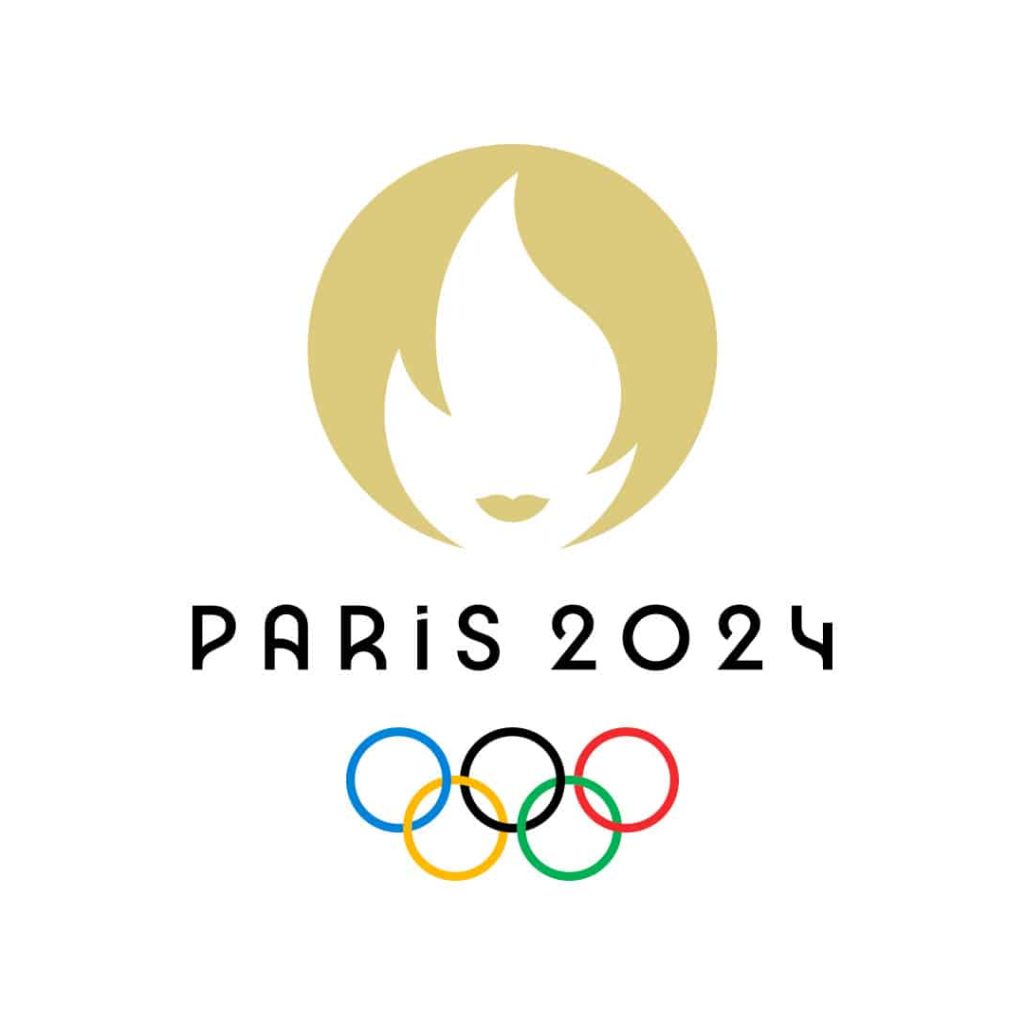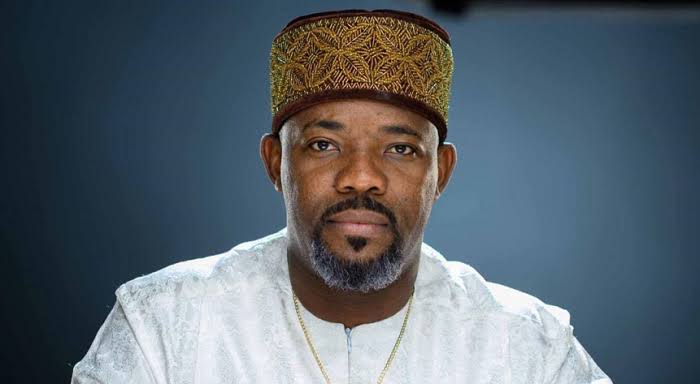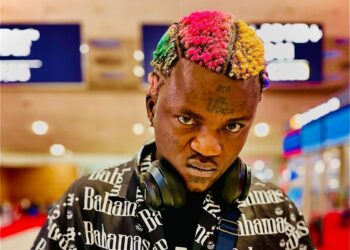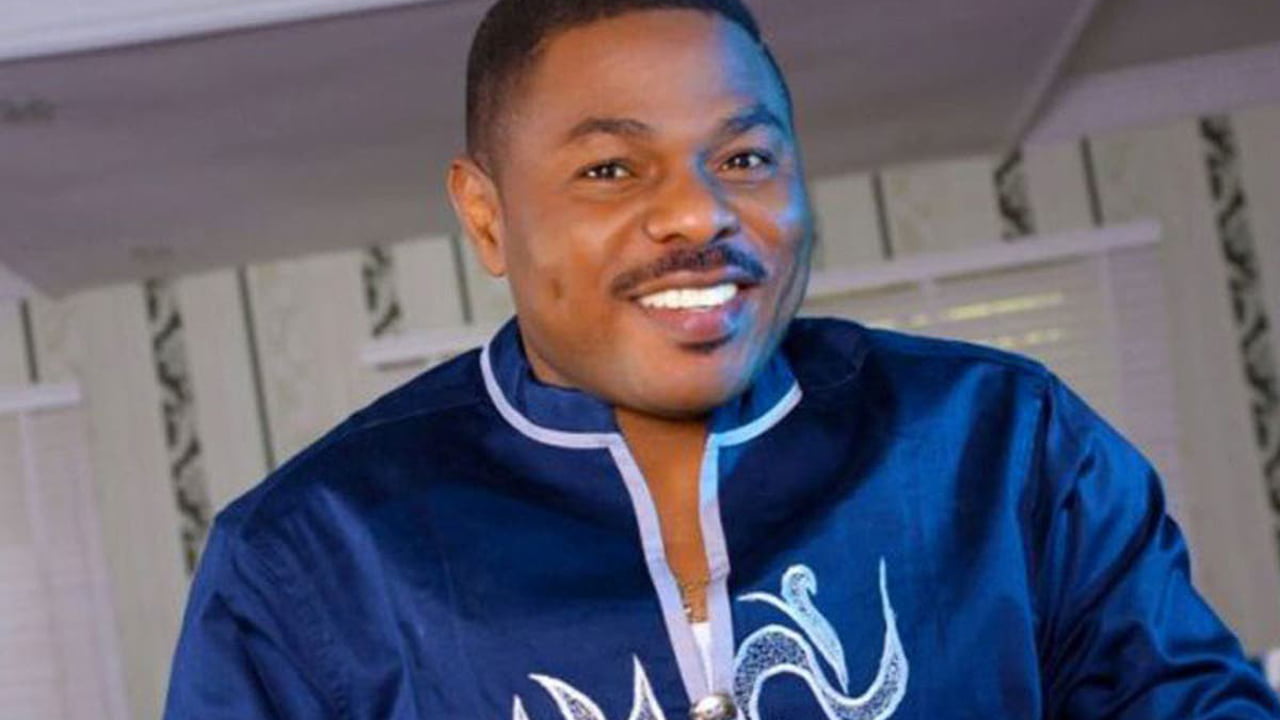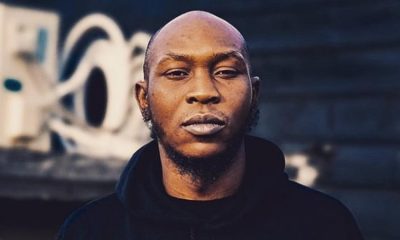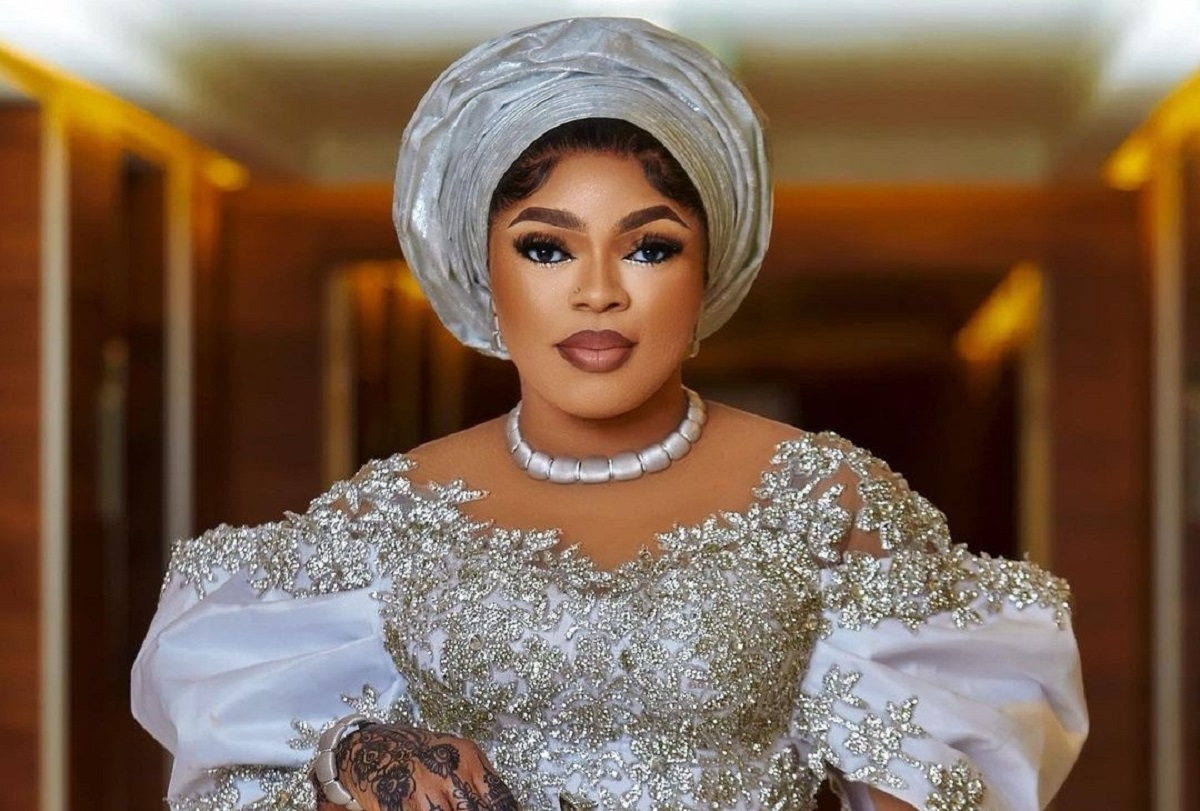The opinions presented in this piece are those of the author and do not necessarily represent InTv Media’s editorial position.Thank you.
Ovation publisher Chief Dele Momodu popularized the expression “owners of Nigeria” to denote a coterie of power brokers and traffickers of influence who habitually sit in conclave to teleguide the choice of political leaders, particularly presidents, and to whom everyday Nigerians are helpless political captives.
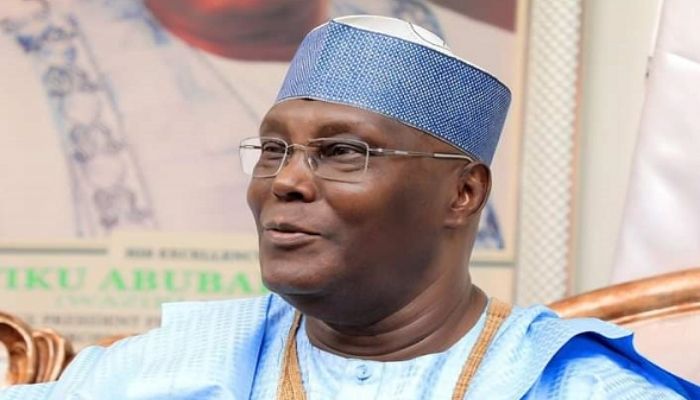
Although they peddle influence and engage in elitist exclusion, “owners of Nigeria” can sometimes be benign, even stabilizing. For instance, in the aftermath of the deaths of MKO Abiola and Sani Abacha in the late 1990s and the debilitating turmoil that gripped the country, they decided that a Yoruba man, specifically General Olusegun Obasanjo, should be president. And it came to be. This calmed the national temperature considerably.
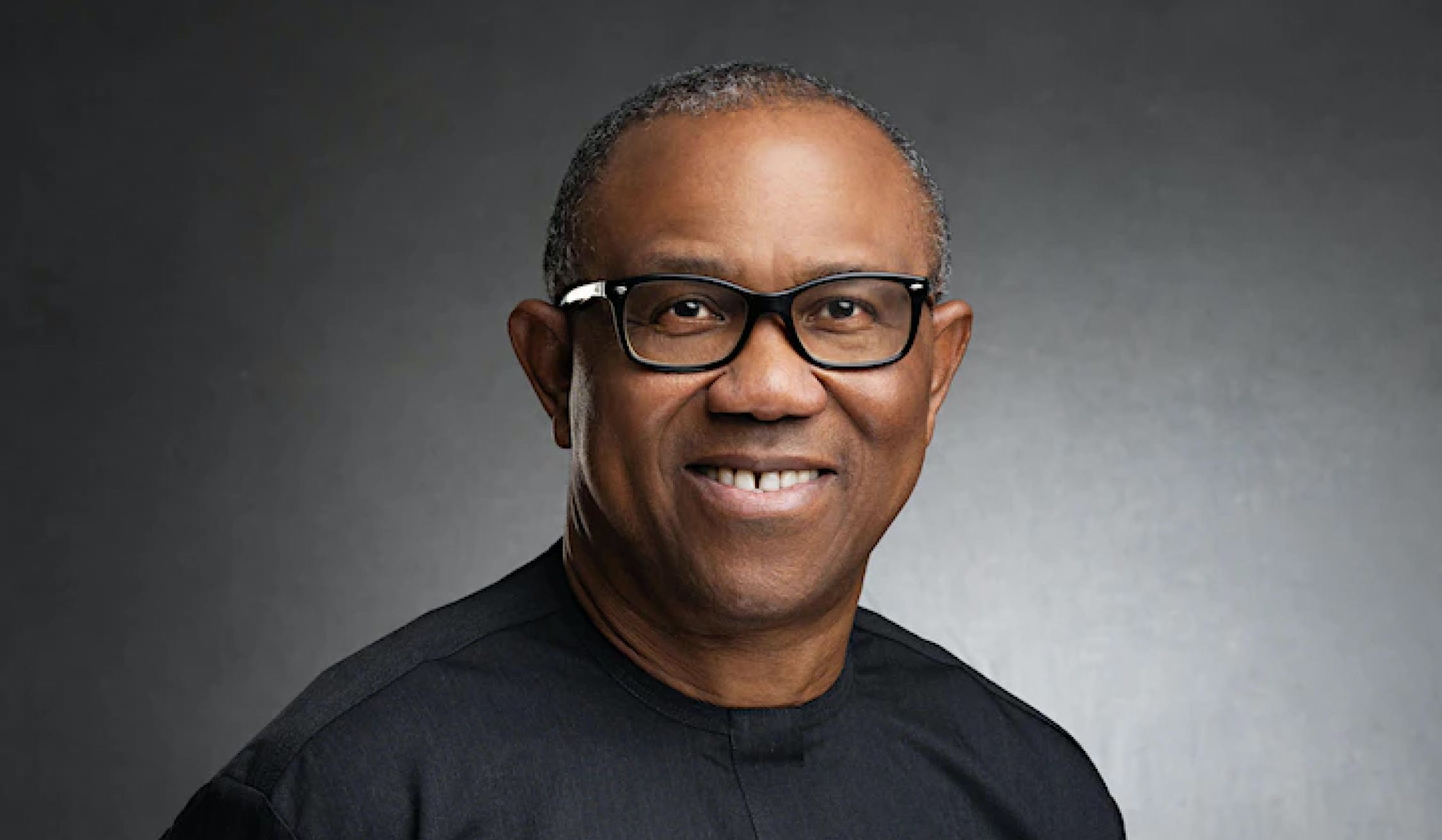
After his two-term tenure in 2007, Obasanjo became a member of this informal, exclusive circle of power brokers whose visible members include General Ibrahim Babangida, General Theophilus Yakubu Danjuma, General Abdulsalami Abubakar, and General Aliyu Gusau.
The group supported Goodluck Jonathan’s ascendancy to the presidency in 2010 when Umar Musa Yar’adua died. It also quietly lent its moral weight behind Jonathan’s election in 2011 even when most northern politicians felt another northerner should have been president, especially after eight years of a southern presidency and a truncated 3-year northern presidency.
READ ALSO: 2023: Free, Fair And Credible Elections
But in 2015, the congress of old stagers that we call “owners of Nigeria” soured on Goodluck Jonathan precisely because of his government’s manifest incompetence in taming Boko Haram’s escalating malignancy and widening terror. They unanimously supported Muhammadu Buhari for president. It must be a signal of the depth of their unease with Jonathan that they supported Buhari against whom several of them nursed deep-seated animosity and antipathy.
Buhari turned out to be worse than Jonathan. The “owners” turned against him in 2019 and supported Atiku Abubakar. Although Atiku Abubakar won the election by close to two million votes, Buhari and his minders exploited the power of incumbency—and the hold they had on INEC chairman Mahmood Yakubu— to outwit the “owners of Nigeria.” Buhari broke their winning streak.
Recall that no living former head of state or president, except the unflaggingly gracious Yakubu Gowon, honored Buhari’s inauguration for a second term. The “owners of Nigeria” collectively withheld their symbolic stamps of approval from Buhari’s fraudulent second term. There was no precedent for that in Nigeria’s democratic history.
Now the “owners of Nigeria” are in disarray. Their loyalties are split between Atiku Abubakar and Peter Obi. While IBB, Abdulsalami Abubakar, and Aliyu Gusau are decidedly in Atiku’s camp, Obasanjo and Theophilus Danjuma support Obi. Goodluck Jonathan also appears to favor Obi, but he isn’t quite a member of this exclusive club in spite of being a former president. Bola Ahmed Tinubu is a bête noire to the “owners of Nigeria.”
I can’t say with certainty what motivates the support of members of the “owners of Nigeria” for either Atiku or Obi. I can only speculate that the northern Muslim members of the club aren’t sold on Obi, have reservations about Tinubu’s health and his association with Buhari, and probably think Atiku is a good compromise because he has committed to serving only one term should he be elected. Plus, since the restoration of civilian rule in 1999, the South has ruled for 13 years. By May 2023, the North would have ruled for 11 years.
Obasanjo has publicly and privately said his support for Obi is informed by what I have consistently called representational justice in my previous articles that advocated for a president from the Southeast. But T.Y. Danjuma’s support for Obi appears to be animated only by religious solidarity. He is dedicating the last years of his life to supporting Christian causes and Christian politicians. He supported Yemi Osinbajo’s presidential primary contest in the APC for the same reason.
T.Y. Danjuma, as I pointed out in a previous column, used to embody immense social and symbolic power in the North in ways that no modern northerner did. Until he started to openly identify with divisive causes, he was one northerner who had managed to capture the imagination of both the Christian north and the Muslim north.
Although Tiv and Kuteb people in Benue and Taraba have always seen him as deeply implicated in the slaughterous communal upheavals that episodically erupt between the Jukun and the Kuteb and between the Jukun and the Tiv (Danjuma is Jukun), he used to excite approbative passions among both Middle Belt sub-regionalists and pan-northern Nigerian enthusiasts.
No living northerner ever came close to approximating this sort of mutually exclusive appeal in the region. Now he has become a villain in Muslim northern Nigeria and a hero in Christian northern Nigeria. His support for Obi will certainly help galvanize northern Christian support but will almost definitely repulse northern Muslim voters.
Buhari and his minders may interpret the apparent opposition to Tinubu by the “owners of Nigeria” as a continuation of their fight against Buhari since 2018, which may cause Buhari to give Tinubu more support than he is inclined to, except that Buhari is not known to fight for anybody other than himself.
Well, the “owners of Nigeria” had power because they could influence—or manipulate—the electoral process. But Buhari’s late Chief of Staff Abba Kyari, who was the lynchpin of Buhari’s 2019 electoral heist, showed that the “owners of Nigeria” could be outsmarted if the INEC chairman can be controlled, blackmailed, and dictated to.
Josef Stalin’s former personal secretary by the name of Boris Bazhanov quoted Stalin to have once said, “I consider it completely unimportant who… will vote, or how; but what is extraordinarily important is this — who will count the votes, and how.”
Nicaraguan dictator Anastasio Somoza was cruder when he mocked a political opponent he fraudulently “defeated”: “Indeed, you won the elections, but I won the count,” he said. The New York Times of May 26, 1880, also quoted Napoleon Bonaparte to have once said: “I care not who casts the votes of a nation, provided I can count them.”
In other words, the power of the “owners of Nigeria” resided in their capacity to determine who counted the vote. They lost that power in 2019. If the new technological safeguards put in place by INEC against rigging aren’t tampered with in 2023, both the “owners of Nigeria” and Buhari maybe rendered irrelevant. The fact that both APC chairman Abdullahi Adamu and APC presidential candidate Bola Tinubu are troubled by these safeguards may indicate that the meaning of “owners of Nigeria” is about to change.
Instead of an amorphous group of crafty old-timers with enduringly deep roots in the structure of Nigeria, “owners of Nigeria” may change to voters in Nigeria. If transparent, on-the-spot electronic transmission of election results, which should be stored on a server that INEC can’t disown at will later—like it did in 2019—becomes institutionalized, everyday Nigerians, and not a shadowy cabal of influence peddlers, could become the “owners of Nigeria.” Next year’s election presents us with that opportunity.
Farooq A. Kperogi
The opinions presented in this piece are those of the author and do not necessarily represent InTv Media’s editorial position.Thank you.
Ovation publisher Chief Dele Momodu popularized the expression “owners of Nigeria” to denote a coterie of power brokers and traffickers of influence who habitually sit in conclave to teleguide the choice of political leaders, particularly presidents, and to whom everyday Nigerians are helpless political captives.

Although they peddle influence and engage in elitist exclusion, “owners of Nigeria” can sometimes be benign, even stabilizing. For instance, in the aftermath of the deaths of MKO Abiola and Sani Abacha in the late 1990s and the debilitating turmoil that gripped the country, they decided that a Yoruba man, specifically General Olusegun Obasanjo, should be president. And it came to be. This calmed the national temperature considerably.

After his two-term tenure in 2007, Obasanjo became a member of this informal, exclusive circle of power brokers whose visible members include General Ibrahim Babangida, General Theophilus Yakubu Danjuma, General Abdulsalami Abubakar, and General Aliyu Gusau.
The group supported Goodluck Jonathan’s ascendancy to the presidency in 2010 when Umar Musa Yar’adua died. It also quietly lent its moral weight behind Jonathan’s election in 2011 even when most northern politicians felt another northerner should have been president, especially after eight years of a southern presidency and a truncated 3-year northern presidency.
READ ALSO: 2023: Free, Fair And Credible Elections
But in 2015, the congress of old stagers that we call “owners of Nigeria” soured on Goodluck Jonathan precisely because of his government’s manifest incompetence in taming Boko Haram’s escalating malignancy and widening terror. They unanimously supported Muhammadu Buhari for president. It must be a signal of the depth of their unease with Jonathan that they supported Buhari against whom several of them nursed deep-seated animosity and antipathy.
Buhari turned out to be worse than Jonathan. The “owners” turned against him in 2019 and supported Atiku Abubakar. Although Atiku Abubakar won the election by close to two million votes, Buhari and his minders exploited the power of incumbency—and the hold they had on INEC chairman Mahmood Yakubu— to outwit the “owners of Nigeria.” Buhari broke their winning streak.
Recall that no living former head of state or president, except the unflaggingly gracious Yakubu Gowon, honored Buhari’s inauguration for a second term. The “owners of Nigeria” collectively withheld their symbolic stamps of approval from Buhari’s fraudulent second term. There was no precedent for that in Nigeria’s democratic history.
Now the “owners of Nigeria” are in disarray. Their loyalties are split between Atiku Abubakar and Peter Obi. While IBB, Abdulsalami Abubakar, and Aliyu Gusau are decidedly in Atiku’s camp, Obasanjo and Theophilus Danjuma support Obi. Goodluck Jonathan also appears to favor Obi, but he isn’t quite a member of this exclusive club in spite of being a former president. Bola Ahmed Tinubu is a bête noire to the “owners of Nigeria.”
I can’t say with certainty what motivates the support of members of the “owners of Nigeria” for either Atiku or Obi. I can only speculate that the northern Muslim members of the club aren’t sold on Obi, have reservations about Tinubu’s health and his association with Buhari, and probably think Atiku is a good compromise because he has committed to serving only one term should he be elected. Plus, since the restoration of civilian rule in 1999, the South has ruled for 13 years. By May 2023, the North would have ruled for 11 years.
Obasanjo has publicly and privately said his support for Obi is informed by what I have consistently called representational justice in my previous articles that advocated for a president from the Southeast. But T.Y. Danjuma’s support for Obi appears to be animated only by religious solidarity. He is dedicating the last years of his life to supporting Christian causes and Christian politicians. He supported Yemi Osinbajo’s presidential primary contest in the APC for the same reason.
T.Y. Danjuma, as I pointed out in a previous column, used to embody immense social and symbolic power in the North in ways that no modern northerner did. Until he started to openly identify with divisive causes, he was one northerner who had managed to capture the imagination of both the Christian north and the Muslim north.
Although Tiv and Kuteb people in Benue and Taraba have always seen him as deeply implicated in the slaughterous communal upheavals that episodically erupt between the Jukun and the Kuteb and between the Jukun and the Tiv (Danjuma is Jukun), he used to excite approbative passions among both Middle Belt sub-regionalists and pan-northern Nigerian enthusiasts.
No living northerner ever came close to approximating this sort of mutually exclusive appeal in the region. Now he has become a villain in Muslim northern Nigeria and a hero in Christian northern Nigeria. His support for Obi will certainly help galvanize northern Christian support but will almost definitely repulse northern Muslim voters.
Buhari and his minders may interpret the apparent opposition to Tinubu by the “owners of Nigeria” as a continuation of their fight against Buhari since 2018, which may cause Buhari to give Tinubu more support than he is inclined to, except that Buhari is not known to fight for anybody other than himself.
Well, the “owners of Nigeria” had power because they could influence—or manipulate—the electoral process. But Buhari’s late Chief of Staff Abba Kyari, who was the lynchpin of Buhari’s 2019 electoral heist, showed that the “owners of Nigeria” could be outsmarted if the INEC chairman can be controlled, blackmailed, and dictated to.
Josef Stalin’s former personal secretary by the name of Boris Bazhanov quoted Stalin to have once said, “I consider it completely unimportant who… will vote, or how; but what is extraordinarily important is this — who will count the votes, and how.”
Nicaraguan dictator Anastasio Somoza was cruder when he mocked a political opponent he fraudulently “defeated”: “Indeed, you won the elections, but I won the count,” he said. The New York Times of May 26, 1880, also quoted Napoleon Bonaparte to have once said: “I care not who casts the votes of a nation, provided I can count them.”
In other words, the power of the “owners of Nigeria” resided in their capacity to determine who counted the vote. They lost that power in 2019. If the new technological safeguards put in place by INEC against rigging aren’t tampered with in 2023, both the “owners of Nigeria” and Buhari maybe rendered irrelevant. The fact that both APC chairman Abdullahi Adamu and APC presidential candidate Bola Tinubu are troubled by these safeguards may indicate that the meaning of “owners of Nigeria” is about to change.
Instead of an amorphous group of crafty old-timers with enduringly deep roots in the structure of Nigeria, “owners of Nigeria” may change to voters in Nigeria. If transparent, on-the-spot electronic transmission of election results, which should be stored on a server that INEC can’t disown at will later—like it did in 2019—becomes institutionalized, everyday Nigerians, and not a shadowy cabal of influence peddlers, could become the “owners of Nigeria.” Next year’s election presents us with that opportunity.
Farooq A. Kperogi
The opinions presented in this piece are those of the author and do not necessarily represent InTv Media’s editorial position.Thank you.
Ovation publisher Chief Dele Momodu popularized the expression “owners of Nigeria” to denote a coterie of power brokers and traffickers of influence who habitually sit in conclave to teleguide the choice of political leaders, particularly presidents, and to whom everyday Nigerians are helpless political captives.

Although they peddle influence and engage in elitist exclusion, “owners of Nigeria” can sometimes be benign, even stabilizing. For instance, in the aftermath of the deaths of MKO Abiola and Sani Abacha in the late 1990s and the debilitating turmoil that gripped the country, they decided that a Yoruba man, specifically General Olusegun Obasanjo, should be president. And it came to be. This calmed the national temperature considerably.

After his two-term tenure in 2007, Obasanjo became a member of this informal, exclusive circle of power brokers whose visible members include General Ibrahim Babangida, General Theophilus Yakubu Danjuma, General Abdulsalami Abubakar, and General Aliyu Gusau.
The group supported Goodluck Jonathan’s ascendancy to the presidency in 2010 when Umar Musa Yar’adua died. It also quietly lent its moral weight behind Jonathan’s election in 2011 even when most northern politicians felt another northerner should have been president, especially after eight years of a southern presidency and a truncated 3-year northern presidency.
READ ALSO: 2023: Free, Fair And Credible Elections
But in 2015, the congress of old stagers that we call “owners of Nigeria” soured on Goodluck Jonathan precisely because of his government’s manifest incompetence in taming Boko Haram’s escalating malignancy and widening terror. They unanimously supported Muhammadu Buhari for president. It must be a signal of the depth of their unease with Jonathan that they supported Buhari against whom several of them nursed deep-seated animosity and antipathy.
Buhari turned out to be worse than Jonathan. The “owners” turned against him in 2019 and supported Atiku Abubakar. Although Atiku Abubakar won the election by close to two million votes, Buhari and his minders exploited the power of incumbency—and the hold they had on INEC chairman Mahmood Yakubu— to outwit the “owners of Nigeria.” Buhari broke their winning streak.
Recall that no living former head of state or president, except the unflaggingly gracious Yakubu Gowon, honored Buhari’s inauguration for a second term. The “owners of Nigeria” collectively withheld their symbolic stamps of approval from Buhari’s fraudulent second term. There was no precedent for that in Nigeria’s democratic history.
Now the “owners of Nigeria” are in disarray. Their loyalties are split between Atiku Abubakar and Peter Obi. While IBB, Abdulsalami Abubakar, and Aliyu Gusau are decidedly in Atiku’s camp, Obasanjo and Theophilus Danjuma support Obi. Goodluck Jonathan also appears to favor Obi, but he isn’t quite a member of this exclusive club in spite of being a former president. Bola Ahmed Tinubu is a bête noire to the “owners of Nigeria.”
I can’t say with certainty what motivates the support of members of the “owners of Nigeria” for either Atiku or Obi. I can only speculate that the northern Muslim members of the club aren’t sold on Obi, have reservations about Tinubu’s health and his association with Buhari, and probably think Atiku is a good compromise because he has committed to serving only one term should he be elected. Plus, since the restoration of civilian rule in 1999, the South has ruled for 13 years. By May 2023, the North would have ruled for 11 years.
Obasanjo has publicly and privately said his support for Obi is informed by what I have consistently called representational justice in my previous articles that advocated for a president from the Southeast. But T.Y. Danjuma’s support for Obi appears to be animated only by religious solidarity. He is dedicating the last years of his life to supporting Christian causes and Christian politicians. He supported Yemi Osinbajo’s presidential primary contest in the APC for the same reason.
T.Y. Danjuma, as I pointed out in a previous column, used to embody immense social and symbolic power in the North in ways that no modern northerner did. Until he started to openly identify with divisive causes, he was one northerner who had managed to capture the imagination of both the Christian north and the Muslim north.
Although Tiv and Kuteb people in Benue and Taraba have always seen him as deeply implicated in the slaughterous communal upheavals that episodically erupt between the Jukun and the Kuteb and between the Jukun and the Tiv (Danjuma is Jukun), he used to excite approbative passions among both Middle Belt sub-regionalists and pan-northern Nigerian enthusiasts.
No living northerner ever came close to approximating this sort of mutually exclusive appeal in the region. Now he has become a villain in Muslim northern Nigeria and a hero in Christian northern Nigeria. His support for Obi will certainly help galvanize northern Christian support but will almost definitely repulse northern Muslim voters.
Buhari and his minders may interpret the apparent opposition to Tinubu by the “owners of Nigeria” as a continuation of their fight against Buhari since 2018, which may cause Buhari to give Tinubu more support than he is inclined to, except that Buhari is not known to fight for anybody other than himself.
Well, the “owners of Nigeria” had power because they could influence—or manipulate—the electoral process. But Buhari’s late Chief of Staff Abba Kyari, who was the lynchpin of Buhari’s 2019 electoral heist, showed that the “owners of Nigeria” could be outsmarted if the INEC chairman can be controlled, blackmailed, and dictated to.
Josef Stalin’s former personal secretary by the name of Boris Bazhanov quoted Stalin to have once said, “I consider it completely unimportant who… will vote, or how; but what is extraordinarily important is this — who will count the votes, and how.”
Nicaraguan dictator Anastasio Somoza was cruder when he mocked a political opponent he fraudulently “defeated”: “Indeed, you won the elections, but I won the count,” he said. The New York Times of May 26, 1880, also quoted Napoleon Bonaparte to have once said: “I care not who casts the votes of a nation, provided I can count them.”
In other words, the power of the “owners of Nigeria” resided in their capacity to determine who counted the vote. They lost that power in 2019. If the new technological safeguards put in place by INEC against rigging aren’t tampered with in 2023, both the “owners of Nigeria” and Buhari maybe rendered irrelevant. The fact that both APC chairman Abdullahi Adamu and APC presidential candidate Bola Tinubu are troubled by these safeguards may indicate that the meaning of “owners of Nigeria” is about to change.
Instead of an amorphous group of crafty old-timers with enduringly deep roots in the structure of Nigeria, “owners of Nigeria” may change to voters in Nigeria. If transparent, on-the-spot electronic transmission of election results, which should be stored on a server that INEC can’t disown at will later—like it did in 2019—becomes institutionalized, everyday Nigerians, and not a shadowy cabal of influence peddlers, could become the “owners of Nigeria.” Next year’s election presents us with that opportunity.
Farooq A. Kperogi
The opinions presented in this piece are those of the author and do not necessarily represent InTv Media’s editorial position.Thank you.
Ovation publisher Chief Dele Momodu popularized the expression “owners of Nigeria” to denote a coterie of power brokers and traffickers of influence who habitually sit in conclave to teleguide the choice of political leaders, particularly presidents, and to whom everyday Nigerians are helpless political captives.

Although they peddle influence and engage in elitist exclusion, “owners of Nigeria” can sometimes be benign, even stabilizing. For instance, in the aftermath of the deaths of MKO Abiola and Sani Abacha in the late 1990s and the debilitating turmoil that gripped the country, they decided that a Yoruba man, specifically General Olusegun Obasanjo, should be president. And it came to be. This calmed the national temperature considerably.

After his two-term tenure in 2007, Obasanjo became a member of this informal, exclusive circle of power brokers whose visible members include General Ibrahim Babangida, General Theophilus Yakubu Danjuma, General Abdulsalami Abubakar, and General Aliyu Gusau.
The group supported Goodluck Jonathan’s ascendancy to the presidency in 2010 when Umar Musa Yar’adua died. It also quietly lent its moral weight behind Jonathan’s election in 2011 even when most northern politicians felt another northerner should have been president, especially after eight years of a southern presidency and a truncated 3-year northern presidency.
READ ALSO: 2023: Free, Fair And Credible Elections
But in 2015, the congress of old stagers that we call “owners of Nigeria” soured on Goodluck Jonathan precisely because of his government’s manifest incompetence in taming Boko Haram’s escalating malignancy and widening terror. They unanimously supported Muhammadu Buhari for president. It must be a signal of the depth of their unease with Jonathan that they supported Buhari against whom several of them nursed deep-seated animosity and antipathy.
Buhari turned out to be worse than Jonathan. The “owners” turned against him in 2019 and supported Atiku Abubakar. Although Atiku Abubakar won the election by close to two million votes, Buhari and his minders exploited the power of incumbency—and the hold they had on INEC chairman Mahmood Yakubu— to outwit the “owners of Nigeria.” Buhari broke their winning streak.
Recall that no living former head of state or president, except the unflaggingly gracious Yakubu Gowon, honored Buhari’s inauguration for a second term. The “owners of Nigeria” collectively withheld their symbolic stamps of approval from Buhari’s fraudulent second term. There was no precedent for that in Nigeria’s democratic history.
Now the “owners of Nigeria” are in disarray. Their loyalties are split between Atiku Abubakar and Peter Obi. While IBB, Abdulsalami Abubakar, and Aliyu Gusau are decidedly in Atiku’s camp, Obasanjo and Theophilus Danjuma support Obi. Goodluck Jonathan also appears to favor Obi, but he isn’t quite a member of this exclusive club in spite of being a former president. Bola Ahmed Tinubu is a bête noire to the “owners of Nigeria.”
I can’t say with certainty what motivates the support of members of the “owners of Nigeria” for either Atiku or Obi. I can only speculate that the northern Muslim members of the club aren’t sold on Obi, have reservations about Tinubu’s health and his association with Buhari, and probably think Atiku is a good compromise because he has committed to serving only one term should he be elected. Plus, since the restoration of civilian rule in 1999, the South has ruled for 13 years. By May 2023, the North would have ruled for 11 years.
Obasanjo has publicly and privately said his support for Obi is informed by what I have consistently called representational justice in my previous articles that advocated for a president from the Southeast. But T.Y. Danjuma’s support for Obi appears to be animated only by religious solidarity. He is dedicating the last years of his life to supporting Christian causes and Christian politicians. He supported Yemi Osinbajo’s presidential primary contest in the APC for the same reason.
T.Y. Danjuma, as I pointed out in a previous column, used to embody immense social and symbolic power in the North in ways that no modern northerner did. Until he started to openly identify with divisive causes, he was one northerner who had managed to capture the imagination of both the Christian north and the Muslim north.
Although Tiv and Kuteb people in Benue and Taraba have always seen him as deeply implicated in the slaughterous communal upheavals that episodically erupt between the Jukun and the Kuteb and between the Jukun and the Tiv (Danjuma is Jukun), he used to excite approbative passions among both Middle Belt sub-regionalists and pan-northern Nigerian enthusiasts.
No living northerner ever came close to approximating this sort of mutually exclusive appeal in the region. Now he has become a villain in Muslim northern Nigeria and a hero in Christian northern Nigeria. His support for Obi will certainly help galvanize northern Christian support but will almost definitely repulse northern Muslim voters.
Buhari and his minders may interpret the apparent opposition to Tinubu by the “owners of Nigeria” as a continuation of their fight against Buhari since 2018, which may cause Buhari to give Tinubu more support than he is inclined to, except that Buhari is not known to fight for anybody other than himself.
Well, the “owners of Nigeria” had power because they could influence—or manipulate—the electoral process. But Buhari’s late Chief of Staff Abba Kyari, who was the lynchpin of Buhari’s 2019 electoral heist, showed that the “owners of Nigeria” could be outsmarted if the INEC chairman can be controlled, blackmailed, and dictated to.
Josef Stalin’s former personal secretary by the name of Boris Bazhanov quoted Stalin to have once said, “I consider it completely unimportant who… will vote, or how; but what is extraordinarily important is this — who will count the votes, and how.”
Nicaraguan dictator Anastasio Somoza was cruder when he mocked a political opponent he fraudulently “defeated”: “Indeed, you won the elections, but I won the count,” he said. The New York Times of May 26, 1880, also quoted Napoleon Bonaparte to have once said: “I care not who casts the votes of a nation, provided I can count them.”
In other words, the power of the “owners of Nigeria” resided in their capacity to determine who counted the vote. They lost that power in 2019. If the new technological safeguards put in place by INEC against rigging aren’t tampered with in 2023, both the “owners of Nigeria” and Buhari maybe rendered irrelevant. The fact that both APC chairman Abdullahi Adamu and APC presidential candidate Bola Tinubu are troubled by these safeguards may indicate that the meaning of “owners of Nigeria” is about to change.
Instead of an amorphous group of crafty old-timers with enduringly deep roots in the structure of Nigeria, “owners of Nigeria” may change to voters in Nigeria. If transparent, on-the-spot electronic transmission of election results, which should be stored on a server that INEC can’t disown at will later—like it did in 2019—becomes institutionalized, everyday Nigerians, and not a shadowy cabal of influence peddlers, could become the “owners of Nigeria.” Next year’s election presents us with that opportunity.
Farooq A. Kperogi



